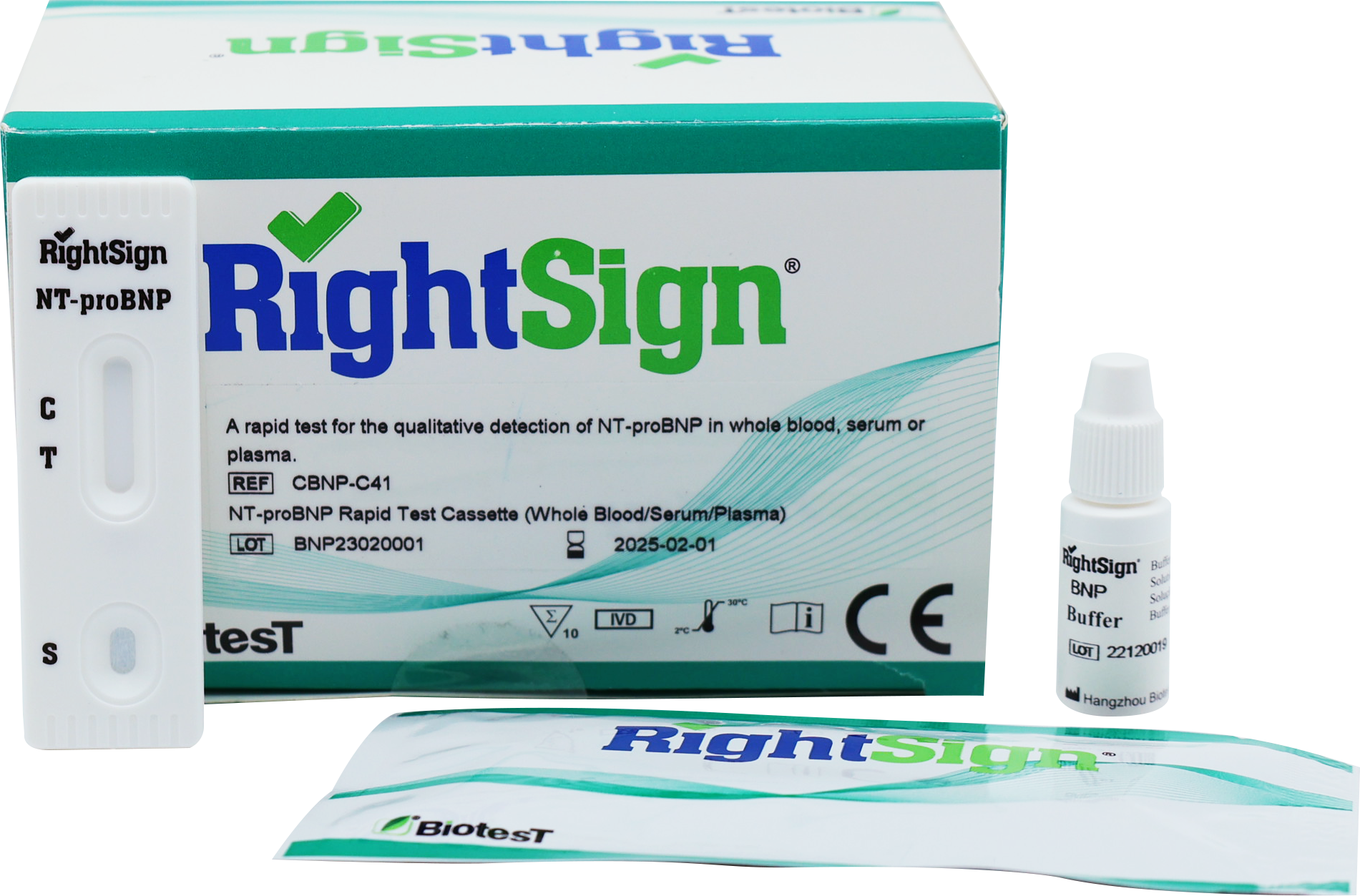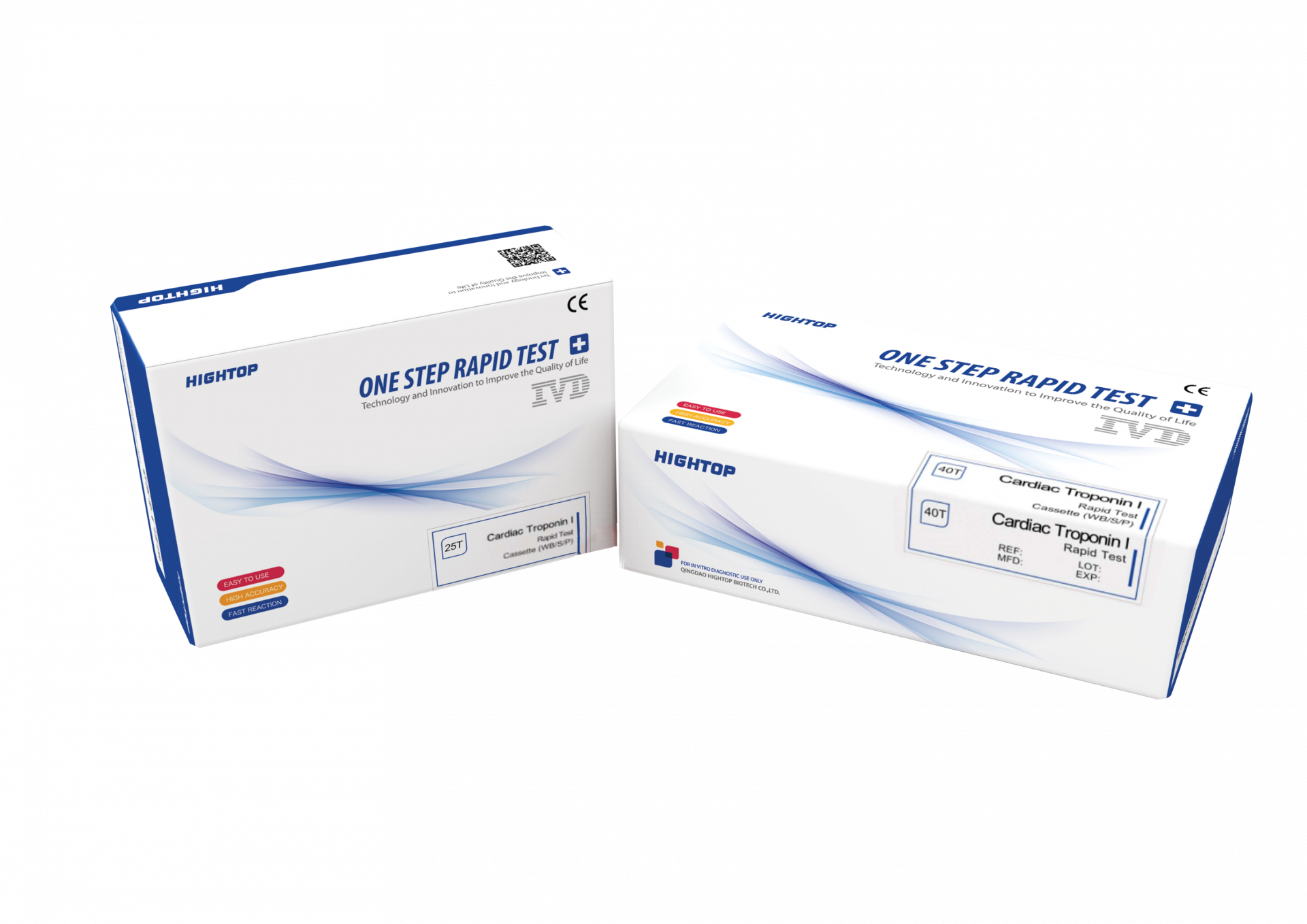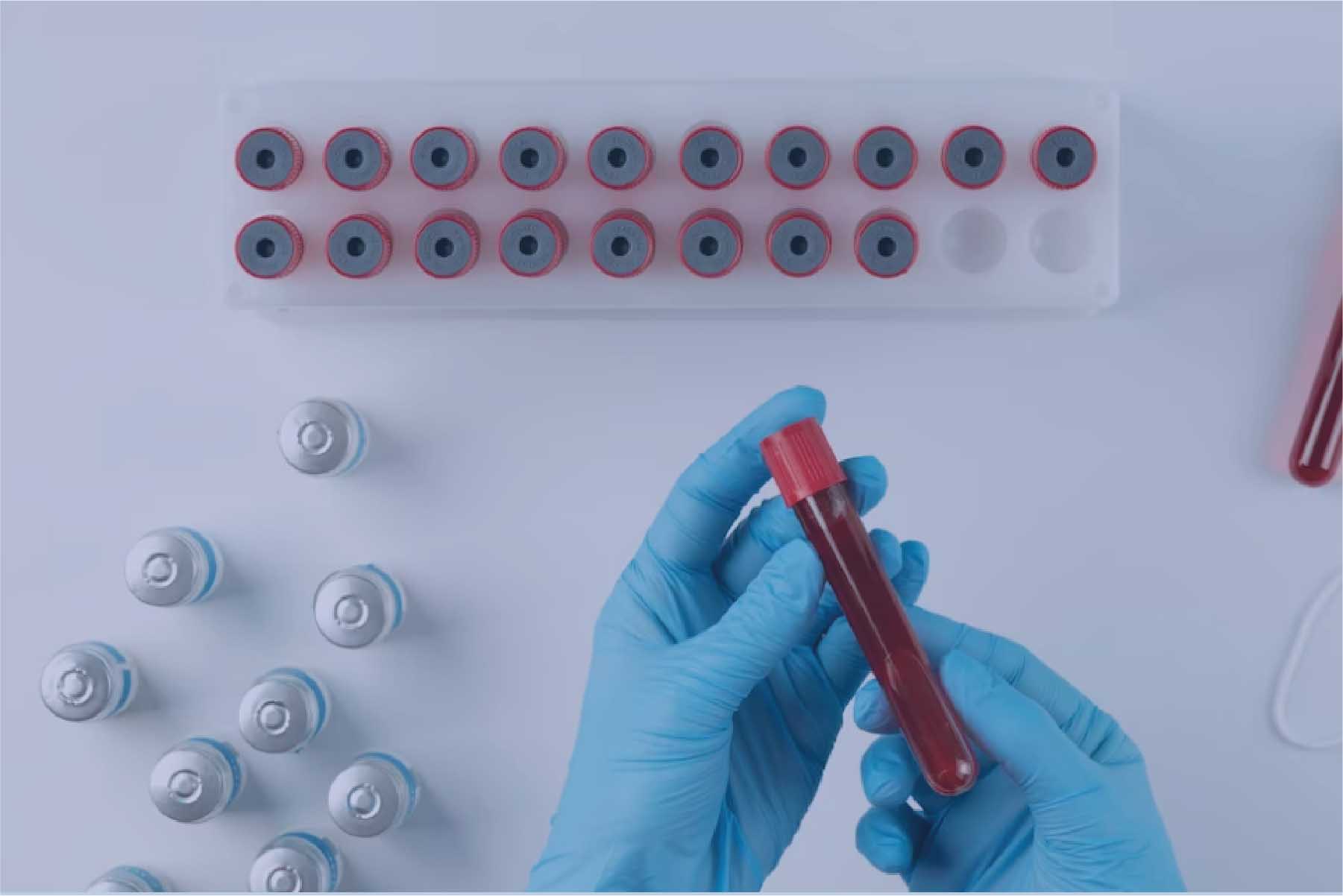CK-MB Test
The CK-MB Test is a diagnostic tool for detecting heart damage, especially myocardial infarction. Our commitment is to deliver healthcare providers, clinics, and hospitals the best-of-class cardiac enzyme CK-MB Tests. This test aids in early diagnosis, allowing timely intervention and improving patient outcomes in cardiac care.
Recommended Solutions for Accurate CK-MB Test Interpretation and Diagnosis
We are pleased to continue providing you with NT-proBNP, D-dimer, and Troponin (cTnl) Rapid Tests so you can maintain a comprehensive approach to the early detection and management of cardiac events.
FAQ for CK-MB Test - Creatine Kinase (CK)-MB Test
The available CK-MB Test helps diagnose heart attacks and monitor cardiac health. Typically, samples are taken using whole blood, serum, or plasma. The leading methods include laboratory-based and point-of-care testing. Find more details here on test sensitivity, specificity, and interpretation guidelines. Read the FAQ for comprehensive insights.

- What varieties of CK-MB Tests are available, and how do they differ?
- How can I evaluate the reliability of the CK-MB Blood Test?
- How do CK-MB Rapid Tests detect cardiac enzyme levels and heart damage?
- Who should consider using the CK-MB Testing?
- What is the accuracy of the Creatine Kinase CK-MB Test?
- What does a CK-MB positive test result mean?
- Why are CKMB diagnostic tests essential for public health?
- Do you offer other cardiovascular rapid tests and a ranking of the best available options?
What varieties of CK-MB Tests are available, and how do they differ?
CK-MB tests come in two main varieties: laboratory-based tests and point-of-care rapid tests. Laboratory tests offer precise measurements of CK-MB isoenzyme levels in the blood and are generally more detailed, while rapid tests provide quicker results, ideal for immediate decision-making in emergency settings. Both assess heart versus skeletal muscle damage.
Laboratory-Based Tests
Laboratory-based CK-MB tests are detailed diagnostic procedures performed in clinical labs. These tests provide precise measurements of CK-MB isoenzyme levels in the blood, helping differentiate between heart muscle and skeletal muscle damage. They are ideal for comprehensive analysis, though results typically take longer to process due to lab requirements.
Point-of-Care Rapid Tests
Point-of-care rapid CK-MB tests are designed for quick results in emergency settings. These tests measure CK-MB levels directly at the patient's location, such as a hospital bedside, allowing for immediate assessment of heart muscle damage. While they offer faster results, they may be slightly less detailed than laboratory-based tests.
How can I evaluate the reliability of the CK-MB blood test?
Evaluate the reliability of CK-MB tests by examining their sensitivity and specificity and consulting independent expert studies on their ability to detect creatine kinase-MB levels.. Consistent results across multiple blood samples and correlation with symptoms like chest pain and muscle damage can indicate reliability, ensuring accurate assessment of heart muscle injury.
How do CK-MB Rapid Tests detect cardiac enzyme levels and heart damage?
CK-MB Rapid Tests detect cardiac enzyme levels by measuring CK-MB in a blood sample from a vein. The test measures the enzyme released from heart muscle cells, indicating heart damage. The elevated level of CK-MB suggests muscle damage, helping diagnose acute myocardial infarction.
Who should consider using the CK-MB Testing?
Individuals with symptoms of heart issues, such as chest pain or suspected myocardial infarction, should consider CK-MB testing. It is crucial for those at risk of heart muscle damage or with conditions affecting skeletal muscle, providing insights into Creatine Kinase MB levels and potential cardiac events.
.webp)
What is the accuracy of the Creatine Kinase CK-MB Test?
The Creatine Kinase CK-MB Test is highly accurate in detecting elevated CK-MB levels associated with heart muscle damage. It distinguishes between total CK isoenzymes, differentiating cardiac from skeletal muscle injury, and provides critical data for diagnosing heart-related conditions.
What does a CK-MB positive test result mean?
A positive CK-MB test indicates elevated CK-MB levels, suggesting heart muscle damage. High CK-MB levels may result from myocardial infarction or other cardiac events, necessitating further evaluation and treatment to address potential heart conditions and related muscle damage.
Why are CKMB diagnostic tests essential for public health?
CK-MB diagnostic tests are vital for public health because they enable the early detection of heart muscle damage. By measuring Creatine Kinase-MB levels, these tests facilitate timely intervention in cardiac events, reducing complications, improving patient outcomes, and managing public health risks associated with heart disease.
Do you offer other cardiovascular rapid tests or a ranking of the best?
Yes, we do offer more rapid cardiovascular tests:
NT-proBNP
Best Product: RightSign NT-proBNP Rapid Test
Cassette
Source: Best NT-proBNP Tests
Troponin Test
Best Product: Hightop Cardiac Troponin I
Rapid Test Cassette
Source: Best Troponin Tests
D-dimer Test
Best Product: RightSign D-Dimer Rapid Test Cassette
Source: Best D-Dimer Tests









